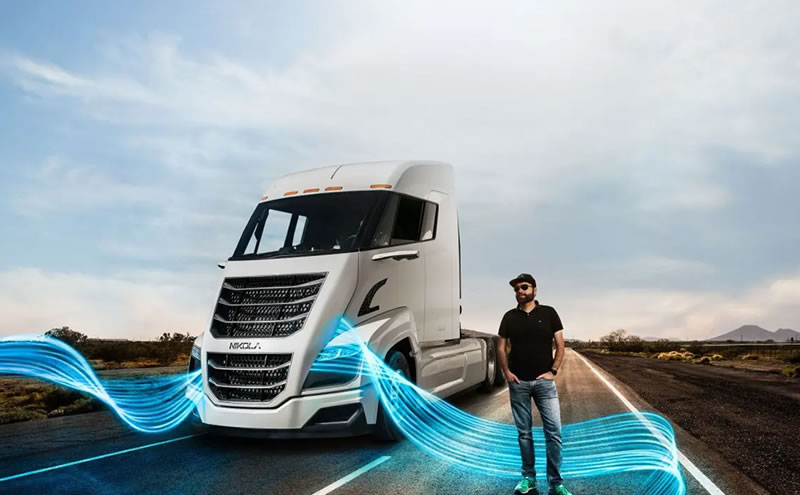Nikola Motors (NASDAQ: NKLA) is charging full speed ahead, daring to navigate a trail blazed by no other — that of creating the first-ever purpose-built hydrogen fuel cell truck in North America. This audacious quest has just received a substantial boost from Bosch Technologies, a venerated name in the field of automotive technology and sensor systems, who has announced a staggering $2.8 billion investment in hydrogen fuel cell technology.
At the heart of this high-stakes venture lies the symbiotic relationship between two critical components: the fuel cell powertrain and its surrounding ecosystem. To ignite a revolution in fuel cell adoption, both of these elements need to operate in perfect synchrony, a feat Nikola is poised to accomplish.
Indeed, Nikola is carving out a path that could very well set the foundation for mass production of its novel fuel cell truck later this year. Moreover, it has secured a new client to help generate clean hydrogen and supply it to customers, further strengthening its proposition.
Nikola's venture, although risky and expensive, is about bringing together two halves of a hydrogen ecosystem. By becoming the launch partner for Bosch's newly announced fuel cell power module, Nikola is uniquely positioned to make a significant impact on industrial decarbonization. As the reality of climate change becomes increasingly urgent, hydrogen is expected to play an integral role in this energy transformation.
Indeed, a successful launch of a fuel cell product could trigger a substantial drop in the technology's cost and a potential surge in the industrial and retail availability of hydrogen as a fuel. A milestone of such magnitude would no doubt bring about a marked increase in the flexibility and energy density of fuel cell technology.
So, how does Nikola plan to achieve this, and what role will Bosch play? For starters, let's delve into Bosch's jaw-dropping $2.8 billion partnership to turbocharge their fuel cell enterprise. A 120-year-old industry titan, Bosch, has its fingerprints on almost every modern car or truck, bringing in more than $50 billion in annual revenue through their automotive and tech businesses.
Bosch sees hydrogen fuel cells as the next big thing in e-mobility, and it's putting its money where its mouth is. Not only is Bosch pushing the envelope in long-haul trucking, but it's also the lead supplier of the hybrid electric system for the LMDh category in the World Endurance Championship. This track record makes their emphasis on hydrogen fuel cells all the more significant.
Nikola's collaboration with Bosch takes the shape of a new fuel cell power module, set to roll off the production line at the Coolidge, Arizona facility. Here, Bosch gets to debut its state-of-the-art fuel cell technology, while Nikola gets to integrate industry-leading tech into its trucks and hydrogen supply strategy.
However, the hydrogen chicken and egg problem doesn't stop at creating the technology — you also need to deliver it. Enter Bayotech, a longstanding player in North American gas transport and logistics, and Nikola's new partner. With six new hydrogen refueling stations poised to come online in California in the coming years, Bayotech's expertise in moving volatile gases and hazardous materials will be invaluable.
In conclusion, with robust backing from Bosch and Bayotech, and a clear roadmap for the future, Nikola Motors may well be on the verge of making the hydrogen revolution a reality sooner than we anticipated.

















Rate this article